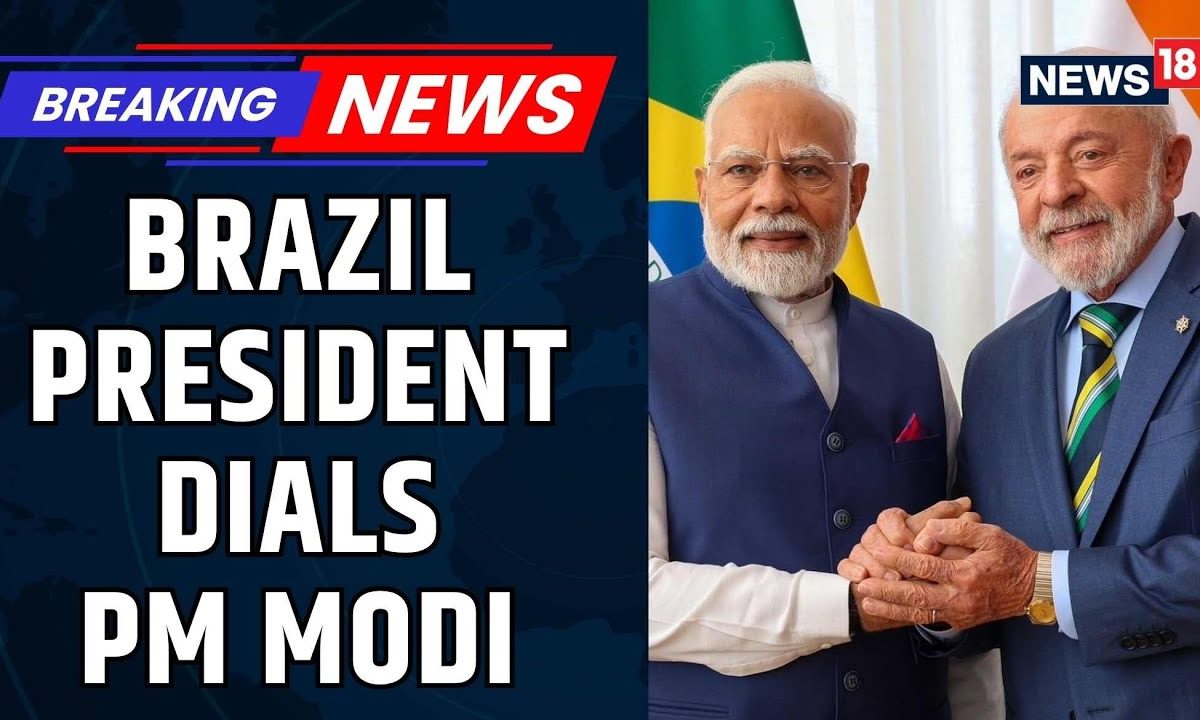

In a move signaling a potential shift in global trade dynamics, BRICS nations are uniting against President Trump's tariff regime, with Indian Prime Minister Narendra Modi and Brazilian President Luiz Inácio Lula da Silva discussing strategic cooperation. This comes as the Trump administration has levied significant tariffs on BRICS member countries, raising concerns about protectionism and unilateral trade measures.
President Trump has targeted BRICS nations with tariffs, even calling the bloc "anti-American" and warning against attempts to de-dollarize. Most recently, the U.S. imposed a 50% tariff on imports from Brazil, a move seen as politically motivated due to the ongoing legal issues surrounding former Brazilian President Jair Bolsonaro. Similarly, India faces a 50% tariff, which the U.S. justifies by citing India's continued purchases of Russian oil. China and South Africa are also facing tariffs.
In response to these tariffs, President Lula of Brazil has taken the lead in rallying BRICS leaders for a coordinated response. He has reached out to Prime Minister Modi and China's President Xi Jinping to discuss the situation and explore potential joint actions. Lula has also stated that he would not call Trump to negotiate.
Prime Minister Modi and President Lula have reaffirmed their commitment to deepening the India-Brazil Strategic Partnership, including in areas such as trade, energy, technology, and defense. They also exchanged views on regional and global issues of mutual interest. Modi stated that a strong partnership between Global South nations benefits everyone.
The BRICS nations have voiced concerns about the rise of unilateral tariff and non-tariff measures, which they say distort trade and are inconsistent with World Trade Organization (WTO) rules. They emphasize the importance of the global south as a driver of positive change, especially amid escalating geopolitical tensions and economic slowdown. BRICS has also doubled down on how they want to shape future global power and trade.
The potential for BRICS to counter Trump's tariffs is significant, considering the bloc represents a substantial portion of the world's population and GDP. BRICS nations are exploring alternative payment systems and trade arrangements to reduce their reliance on the U.S. dollar. Lula has called for global change, criticizing U.S. dollar dominance, and urging UN reform. There is also discussion of the need for structural change in the UN charter.
Some analysts believe that Trump's tariffs could push BRICS nations closer together, creating a coalition of convenience that could reshape global commerce. India, for example, views access to the American market as one option among many and can find other trading partners. India has said that it will take all actions necessary to protect its national interests.
The situation remains fluid, and the long-term impact of Trump's tariffs on BRICS nations is yet to be seen. However, the current moves towards greater cooperation and the exploration of alternative trade mechanisms suggest a determined effort to counter the perceived challenges posed by the U.S. trade policies. These coordinated actions could potentially lead to a more multipolar global order.